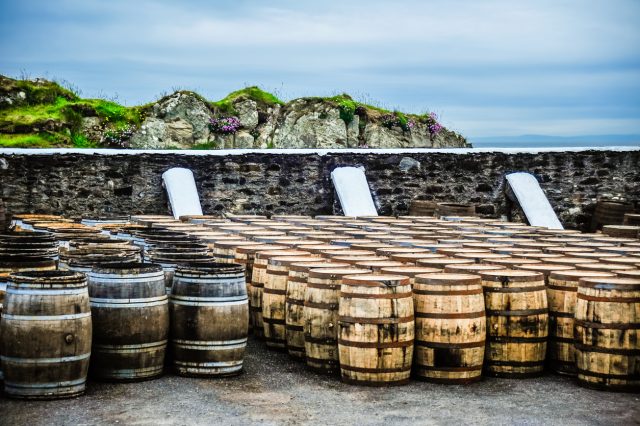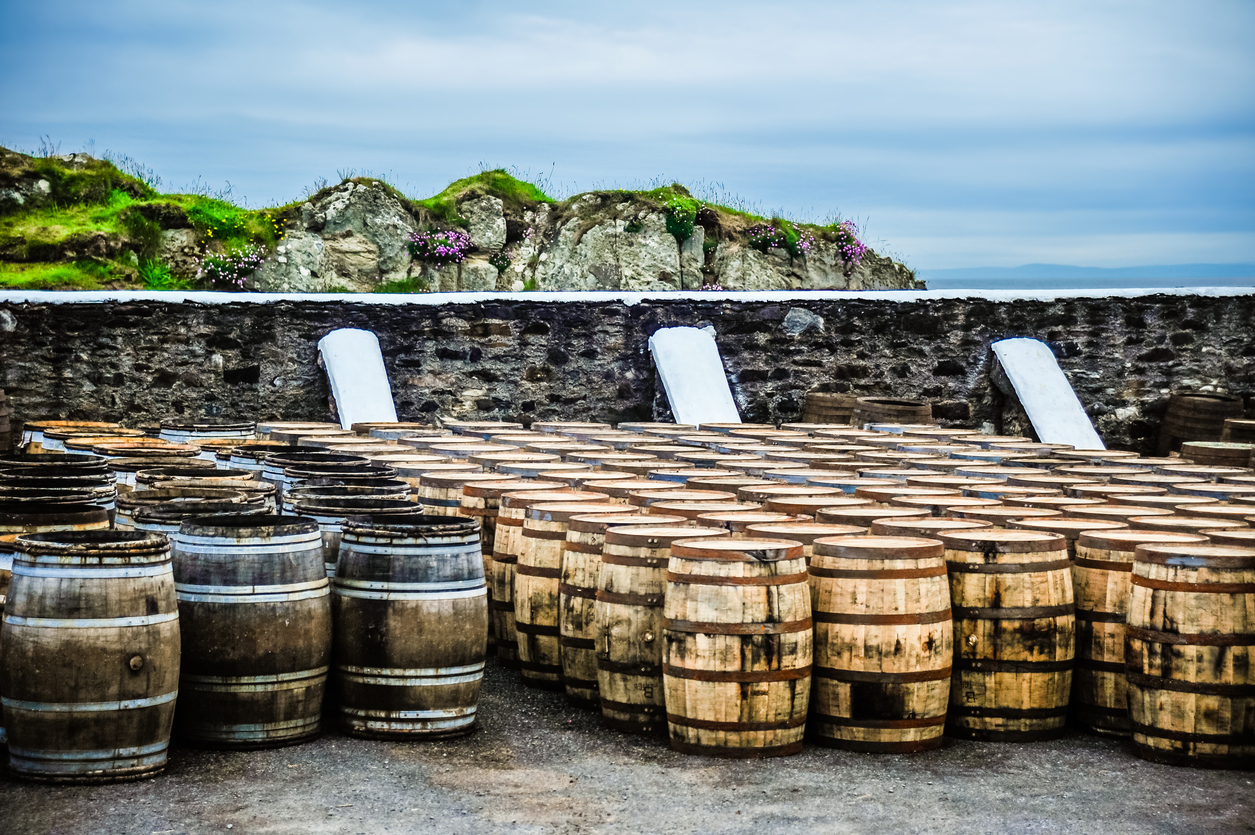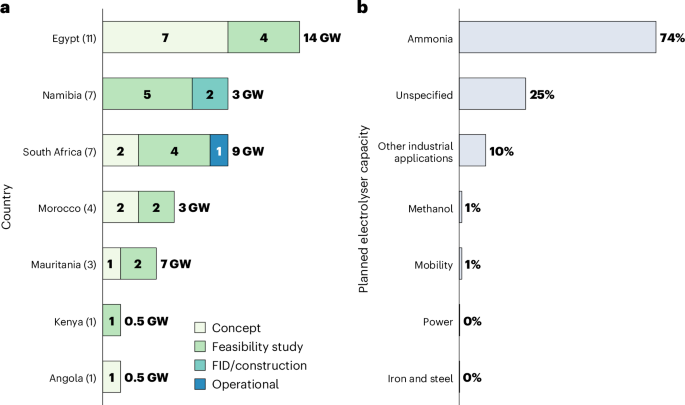The UK’s new inventory of living traditions could bring increased recognition and protection to iconic drinks like gin, whisky and cask ale, as communities nominate local traditions for UNESCO recognition.

In a move that seeks to safeguard the country’s intangible cultural heritage, the government’s inventory, which is the result of ratifying the 2003 UNESCO Convention for the Safeguarding of Intangible Cultural Heritage, promises to bring long-overdue recognition to traditions that are at the heart of British identity, including those with deep ties to the drinks sector.
The UK’s diverse history of culinary practices, particularly its drinks, has long been a point of national pride. From Scotland's whisky-making prowess to the rituals surrounding English afternoon tea and Welsh mead,
the announcement of an official inventory will undoubtedly have implications for the production, marketing and global reputation of these time-honoured practices.
A celebration of the drinks heritage
At first glance, the inclusion of "culinary practices" in the seven categories for nominations might seem to focus more on food than drink. However, as history has shown, British drinks are as much a part of the culinary fabric as the food we associate with these traditions. The notion of ‘culinary practices’ has wide-reaching implications, including the craft of distilling, brewing and even the art of wine pairing.
Take, for example, gin, which has experienced a renaissance in recent years. The spirit's deeply rooted history in the UK, from its London Dry style to regional varieties across the country, could be in line for recognition. A formal designation of gin as part of the UK’s living heritage could help protect both traditional recipes and production methods from modern-day threats, including mass-produced imitations that may dilute the distinctiveness of British gin.
Similarly, the long-established craft of brewing, exemplified by the likes of cask ales, bitters, and porters, has been part of British culture for centuries. The inventory could provide a platform for small-scale breweries to elevate their craft, ensuring that these time-honoured practices are preserved for future generations. The national dialogue surrounding traditional brewing techniques might also encourage investment in both heritage preservation and innovation within the sector.
The impact of local traditions on drinks
The possibility of local traditions, such as the art of cider-making in the West Country or the renowned Scotch whisky distilleries in Speyside, gaining official recognition could have several consequences for both producers and consumers alike. For one, it could provide a significant boost to local economies, with increased tourism linked to these heritage sites. Distilleries could see a surge in interest, not only from global drink enthusiasts but also from cultural tourists eager to explore the story behind each bottle.
Moreover, the cultural recognition of traditional drinks may also bring a fresh wave of pride and authenticity to the drinks industry. Consumers, especially those concerned with provenance and sustainability, are increasingly seeking out products that offer a deeper connection to local culture and heritage. By nominating their beloved traditions, local communities could ensure that their drinks receive the recognition they deserve and continue to thrive in an increasingly competitive global market.
Global recognition and commercial opportunity
With the potential for UK drinks traditions to be officially recognised by a global body such as UNESCO, the drinks sector could see an uptick in international interest. After all, the UK’s long-standing relationship with brands like Scotch whisky has already established a solid international reputation. Official recognition could offer both historical depth and contemporary relevance, strengthening the UK’s position in the global drinks marketplace.
However, this new layer of recognition also introduces a level of scrutiny that may not always be favourable. As more and more artisanal producers vie for space on the inventory, there could be questions about what constitutes “authentic” and “traditional.” Brands will have to strike a delicate balance between celebrating their heritage while ensuring that they don’t become shackled by it, especially as younger generations of consumers begin to redefine what they value in their drinks.
A platform for innovation
One potential benefit of this new inventory lies in the opportunity it presents for innovation within the context of tradition. As the drinks industry celebrates its roots, new interpretations of old recipes and production methods are emerging. The success of smaller distilleries and craft brewers can be attributed to the willingness of both consumers and producers to embrace innovation while remaining true to heritage.
For instance,
English sparkling wine, which has gained international acclaim in recent years, is an excellent example of tradition meeting innovation. While the craft of viticulture in the UK is centuries old, modern producers have made impressive strides in creating world-class sparkling wines that reflect both the changing landscape of British winemaking and the country's longstanding viticultural history.
The official recognition of traditional drinks as part of the UK’s living heritage could provide new marketing opportunities, boost local economies, and secure the future of iconic beverages. However, as the list of recognised traditions grows, the industry will also need to carefully navigate the tensions between preserving heritage and embracing the creative freedom that has fuelled the UK drinks industry’s resurgence.

 In a move that seeks to safeguard the country’s intangible cultural heritage, the government’s inventory, which is the result of ratifying the 2003 UNESCO Convention for the Safeguarding of Intangible Cultural Heritage, promises to bring long-overdue recognition to traditions that are at the heart of British identity, including those with deep ties to the drinks sector.
The UK’s diverse history of culinary practices, particularly its drinks, has long been a point of national pride. From Scotland's whisky-making prowess to the rituals surrounding English afternoon tea and Welsh mead, the announcement of an official inventory will undoubtedly have implications for the production, marketing and global reputation of these time-honoured practices.
In a move that seeks to safeguard the country’s intangible cultural heritage, the government’s inventory, which is the result of ratifying the 2003 UNESCO Convention for the Safeguarding of Intangible Cultural Heritage, promises to bring long-overdue recognition to traditions that are at the heart of British identity, including those with deep ties to the drinks sector.
The UK’s diverse history of culinary practices, particularly its drinks, has long been a point of national pride. From Scotland's whisky-making prowess to the rituals surrounding English afternoon tea and Welsh mead, the announcement of an official inventory will undoubtedly have implications for the production, marketing and global reputation of these time-honoured practices.





















































































![[Video] The Weekly Break Out Ep. 20: Pacific policy in Singapore and the UK’s new defense plan](https://breakingdefense.com/wp-content/uploads/sites/3/2025/06/Break-Out-ep-20-thumb-Play-Button.jpg?#)




























































